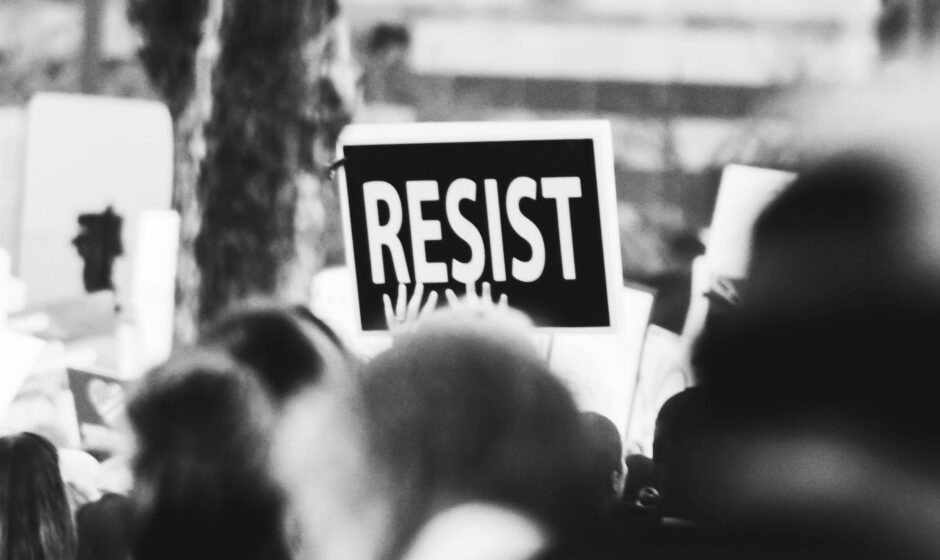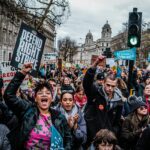Galactday: 55449.7
As the nation prepares for a military parade in Washington D.C. celebrating the U.S. Army’s 250th anniversary, and Donald Trump’s making it about him. Has ignited a significant wave of nationwide protests set to sweep across the United States. Organized under the banner of the “No Kings” movement, these demonstrations aim to be a “nationwide day of defiance” against what organizers describe as authoritarianism, billionaire-first politics, and the militarization of American democracy. Photo by Sides Imagery
Thousands of events are scheduled in nearly 2,000 locations spanning all 50 states, from bustling city centers to quiet small towns. While the nation’s capital will host the military spectacle, “No Kings” organizers have deliberately opted against protests in Washington D.C. itself, citing safety concerns and a desire to avoid direct confrontation with the parade. Instead, a flagship march and rally is planned for Philadelphia, a city steeped in the history of American independence and democratic ideals.
The “No Kings” movement is orchestrated by the 50501 Movement, a national grassroots initiative that emphasizes nonviolent action. Their core message resonates with a deep-seated American tradition of popular sovereignty: “real power isn’t staged in Washington, it rises up everywhere else.”7
A Legacy of Nonviolent Resistance in America. The planned “No Kings” protests draw upon a rich and often impactful history of nonviolent resistance in the United States, a legacy that has profoundly shaped the nation’s political landscape. From the earliest days of the republic to the present, citizens have consistently employed peaceful means to challenge authority, demand rights, and effect societal change.
One of the earliest and most successful examples of nonviolent resistance can be traced to the colonial resistance against British rule. The boycott of British goods in response to the Stamp Act of 1765 demonstrated the power of economic pressure and collective action, ultimately leading to the act’s repeal and setting a precedent for organized, non-military defiance. The First Amendment to our U.S. Constitution, with its guarantees of freedom of speech, peaceful assembly, and the right to petition the government, further enshrined the legal basis for such protests.
The women’s suffrage movement of the late 19th and early 20th centuries provided another powerful illustration. Through sustained marches, picketing, and acts of civil disobedience, suffragists relentlessly pushed for the right to vote, culminating in the passage of the 19th Amendment in 1920. Similarly, the labor movement has long utilized strikes and sit-down strikes as nonviolent tools to demand better working conditions and fair treatment.
However, it is the Civil Rights Movement of the mid-20th century that stands as the most iconic testament to the transformative power of nonviolent protest in American history. Inspired by Mahatma Gandhi’s philosophy, leaders like Martin Luther King Jr. championed nonviolent direct action to dismantle deeply entrenched racial segregation and discrimination. Pivotal moments such as the Montgomery Bus Boycott, the student sit-ins, the Freedom Rides, and the Selma to Montgomery Marches not only exposed the brutal realities of segregation but also galvanized public opinion and ultimately forced legislative action, leading to the landmark Civil Rights Act of 1964 and the Voting Rights Act of 1965. These movements demonstrated how nonviolence could claim the moral high ground, disrupt the status quo, and compel systemic change.
Later movements, including the widespread anti-Vietnam War protests and the anti-nuclear movement, further showcased the efficacy of nonviolent tactics like large-scale demonstrations, draft card burnings, and acts of civil disobedience in influencing public policy and international relations. More recently, movements like Occupy Wall Street and Black Lives Matter have continued this tradition, utilizing peaceful assembly, marches, and direct action to bring attention to issues of economic inequality and racial injustice.
The “No Kings” protests on June 14th, while focused on contemporary political concerns, are thus deeply rooted in a proud American heritage of citizens exercising their fundamental rights to challenge power and advocate for a more just and democratic society through peaceful means. As thousands gather across the nation, they will echo a long-standing belief: that the strength of American democracy ultimately resides not in its institutions alone, but in the engaged and dissenting voices of its people.




